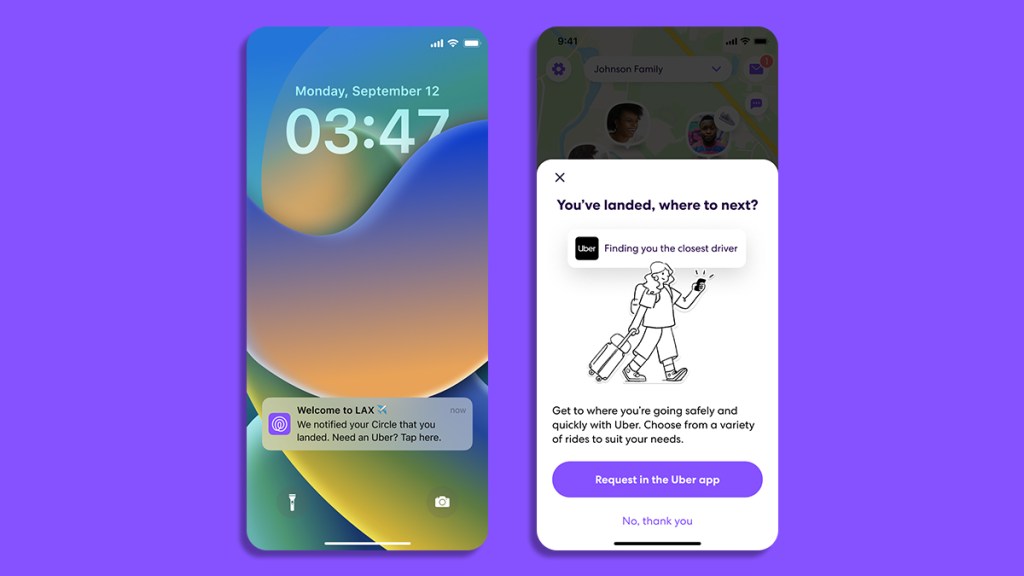
For the Uber campaign, when users land from a flight, they will get a prompt to download the ride-hailing app. Uber will also run in-app ads using Life360’s data on its 18+ users starting in mid-September.
The focus is to target parents of teens with teen accounts on Uber, which lets parents monitor their kids’ Uber use. If parents refer teens to create an Uber teen account, the latter will get six free rides and six free orders in September.
“At Uber, we see a tremendous opportunity to connect with families in meaningful ways through our partnership with Life360,” said Cait O’Donovan, interim U.S. and Canada consumer operations and new verticals lead at Uber. “With their deep understanding of family routines and our commitment to safe, reliable transportation, we’re able to provide solutions that simplify everyday life while ensuring peace of mind.”
Advertisers looking for families and location
Life360 believes it can stand out from competitors because of its family-centric audience and location data.
“We’re starting to generate interest from a lot of other brands that are interested in our proximity to modern family life and families in general,” McDevitt said, “and brands and advertisers that really care about location-specific insights and audiences.”
McDevitt suggested that potential advertisers could include automotive brands, which could use Life360’s data to ascertain whether a family is getting a new driver or if it’s growing in size. McDevitt also listed streaming companies and restaurant brands that could fulfill other needs for a family.
“It’s exciting to contemplate something beyond an individual and a household as a targetable group,” said Ana Milicevic, co-founder of programmatic consultancy Sparrow Advisors. “For example, friend groups or extended family can be particularly impactful with key purchasing decisions.”
In an investor presentation, Life360 cites Uber’s own advertising business, which is expected to hit $1 billion this year, as a case study for how investors can think about the potential growth of Life360’s advertising business.
But achieving that level of success might be the exception rather than the rule, said a mobile advertising executive, speaking anonymously. The exec pointed to community-focused platform NextDoor, which made $218 million in revenue last year, primarily from advertising with around 41.8 million weekly active users.

